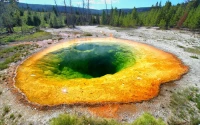Climate Finance: Misdirected Aid or a Necessary Evil?
Alright, buckle up, because this is a wild one. We're talking about climate finance – the billions of dollars pledged by wealthy nations to help developing countries fight climate change. Sounds straightforward, right? Help those who need it most, accelerate the green transition, and save the planet. But, as always, the devil is in the details.
The Climate Finance Conundrum
A recent analysis by The Guardian and Carbon Brief has revealed something… well, let's just say it's raising eyebrows. It turns out that significant chunks of this climate finance are flowing to countries like China, Saudi Arabia, and the UAE – nations that, shall we say, aren't exactly hurting for cash. I mean, the UAE, with a GDP per capita similar to France or Canada, received over $1 billion in loans from Japan logged as climate finance. Seriously? China and Saudi Arabia among nations receiving climate loans, analysis reveals
Now, before we jump to conclusions and start screaming about corruption, let's think about this for a minute. Is this misdirected aid, or is there a method to the madness?
The argument, I suppose, is that these countries, despite their wealth, still need to transition to cleaner energy sources. And, let's be honest, they're major players on the world stage. If they don't clean up their act, we're all toast. So, maybe, just maybe, this is a necessary evil. A sort of "too big to fail" approach to climate action. Think of it like trying to stop a runaway train. Do you focus on the caboose, or do you try to wrestle control of the engine?
But here's the rub: while the big guys are getting loans, some of the world's poorest countries – the least developed countries (LDCs) – are getting squeezed. Many are receiving climate finance primarily in the form of loans, pushing them further into debt. Bangladesh and Angola, for example, are seeing 95% or more of their climate finance as loans. Is this really helping, or is it just creating a new kind of dependency?
Ritu Bharadwaj at the International Institute for Environment and Development rightly points out that “Climate finance is increasing the financial burden on poorer nations. Even if the money donated is a concessional loan, those loans do also come with conditions which might benefit the lender more than the recipient.” It’s like offering someone a life raft made of lead – technically, you're helping them stay afloat, but you're also dragging them down.
And it's not just about the money itself, it's about the structure. The UN's development categories, which determine who gets what, haven't been updated since 1992. That's like using a map from the Stone Age to navigate the modern world! Sarah Colenbrander at the Overseas Development Institute hits the nail on the head: "It is absurd that such nations remain in the same category as countries like Togo, Tonga and Tanzania.”

The UN is aware of the problem. A spokesperson said, “The inequities revealed in climate finance flows highlight why a shift in the global financial system is urgently needed. Treating climate finance as charity has held back the progress the world needs, as has treating it purely as a cost and ignoring the massive human and economic dividends it pays.”
Joe Thwaites at the Natural Resources Defense Council puts it plainly: “This is not charity. It is a strategic investment that addresses the root causes of many of the crises we see daily: cost of living, supply chain disruptions, natural disasters, forced migration and conflict.”
The question then becomes, how do we fix this? How do we ensure that climate finance is actually helping those who need it most, without hamstringing them with debt? How do we balance the need to address climate change on a global scale with the imperative to alleviate poverty and promote sustainable development?
Maybe the answer lies in innovative financial instruments. Maybe it's about creating a more transparent and accountable system for tracking climate finance flows. Maybe it's about finally updating those outdated UN development categories.
A Golden Opportunity?
This isn't just about money; it's about opportunity. It's about creating a world where everyone has a chance to thrive in a green economy. It's about ensuring that the fight against climate change doesn't exacerbate existing inequalities, but instead helps to bridge the gap between rich and poor.
When I first read about this, I honestly felt a surge of both frustration and hope. Frustration because it's clear that the current system is flawed, but hope because the conversation is happening, and people are starting to demand change. It reminds me of the early days of the internet. We knew it had the potential to connect the world and democratize information, but we also knew it could be used for nefarious purposes. It took years of debate, experimentation, and innovation to get where we are today, and we're still not there yet.
But look at the impact the internet has had! That's the scale of the opportunity we have with climate finance. We can build a truly sustainable and equitable future, if we're willing to be bold, creative, and, most importantly, honest about the challenges we face. We must ensure that those countries who truly need the money are getting it in the form of grants, not loans that will strangle their economies.
It's a massive undertaking, but it's one that we can't afford to fail.










